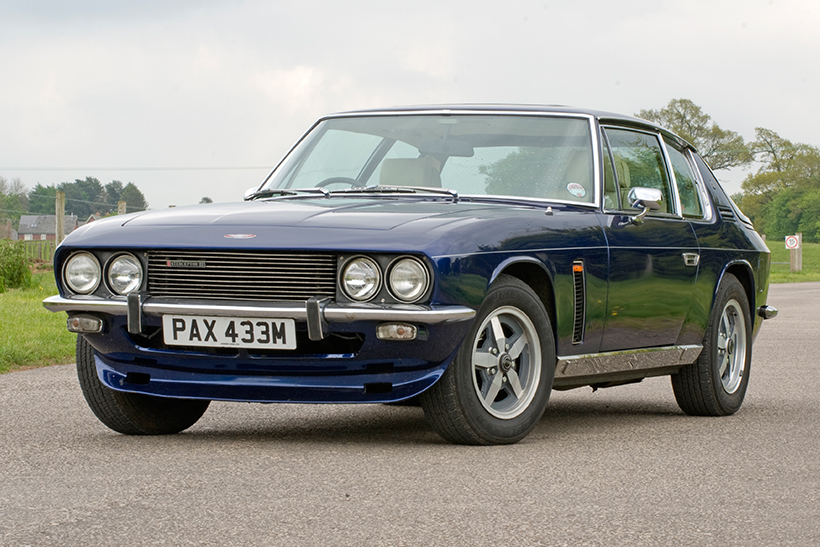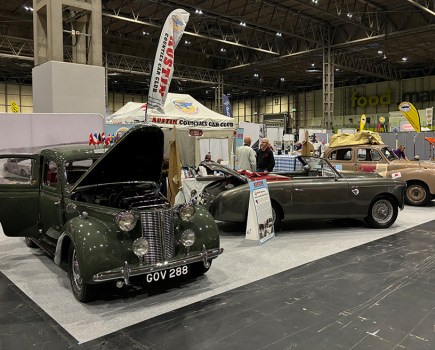We think of car making in the Midlands as being concentrated in Coventry and Birmingham but the wider Black Country was host to many legendary names.
There was comedy and confusion recently in the CW office when Peter Simpson referred in his Back Box column to a fictitious ‘Bean Can car company’. In response to a Sub Editor commenting out loud on the piece, those of us wanting to show off our obscure car industry knowledge immediately started explaining about Bean Cars, the 1920s Dudley-based maker which once outsold Austin… whereupon other colleagues then assumed they were being wound up.
The exchange got us thinking though: the Black Country (as distinct from Birmingham) was once home to many well-known car makers and some more obscure too.
There are too many to list here, but we’ve picked out a few of the better-known ones for a rare moment in the spotlight.
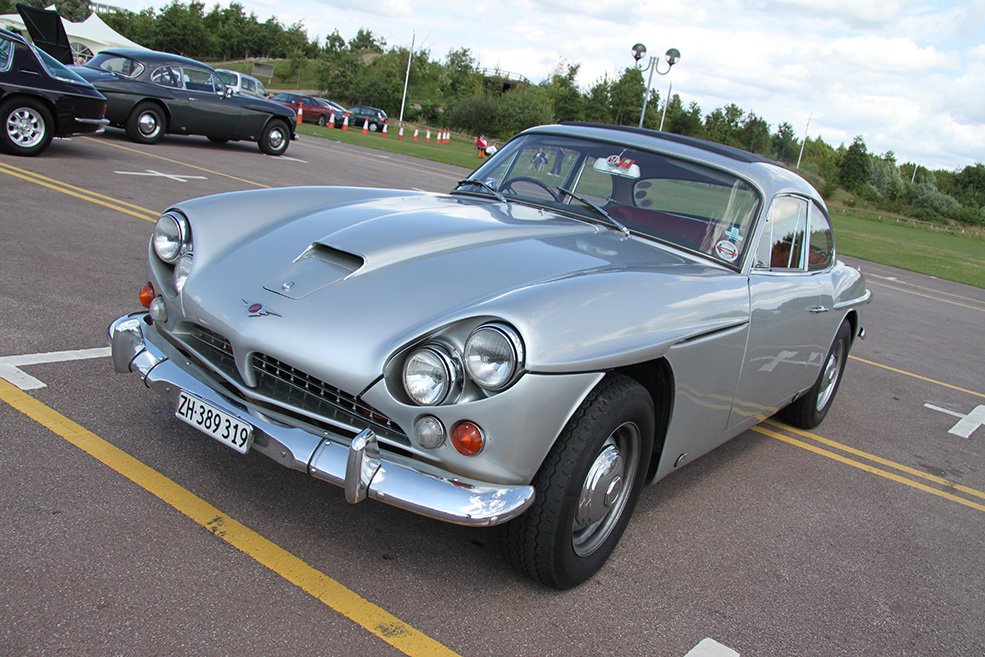
Jensen (1935-1976)
Of all the Black Country makers here, West Bromwich-based Jensen is by far the best-known in classic car circles, even if Guy did ultimately out-produce it with buses and trucks. The Jensen brothers both got their start in the motor industry after building their own special-bodied Austin and eventually established their own business specialising in coachbuilt bodies on volume-produced chassis.
Jensen Motors began producing cars under its own ‘JSN’ brand in 1935, production of cars and commercial vehicles resuming postwar with car and the first use of the Interceptor name coming in 1950. The stylish fibreglass Jensen 541 appeared in 1953 and then the Chrysler V8-powered CV8 in 1962. This led directly to the Touring-styled Interceptor, the magnificence of which showed the world how capable a carmaker Jensen was.
It was a costly exotic though and despite contract work for other makers including Volvo P1800 and Austin-Healey bodies, Jensen needed a more affordable model. This would be the ill-fated Jensen-Healey which used Lotus’s newly-developed twin-cam four-cylinder engine, bought by Jensen’s then owner Kjell Qvale in a deal which didn’t include a warranty from its maker.
Despite by then having Donald Healey on board – he wanted a car to replace his own Healey sports cars – Jensen was dragged into financial turmoil and closed its doors in 1976. As an intriguing footnote, Jensen Parts and Service Ltd was the subject of a management buyout and eventually became what we know today as International Motors, successful importers of Subaru, Hyundai and others.
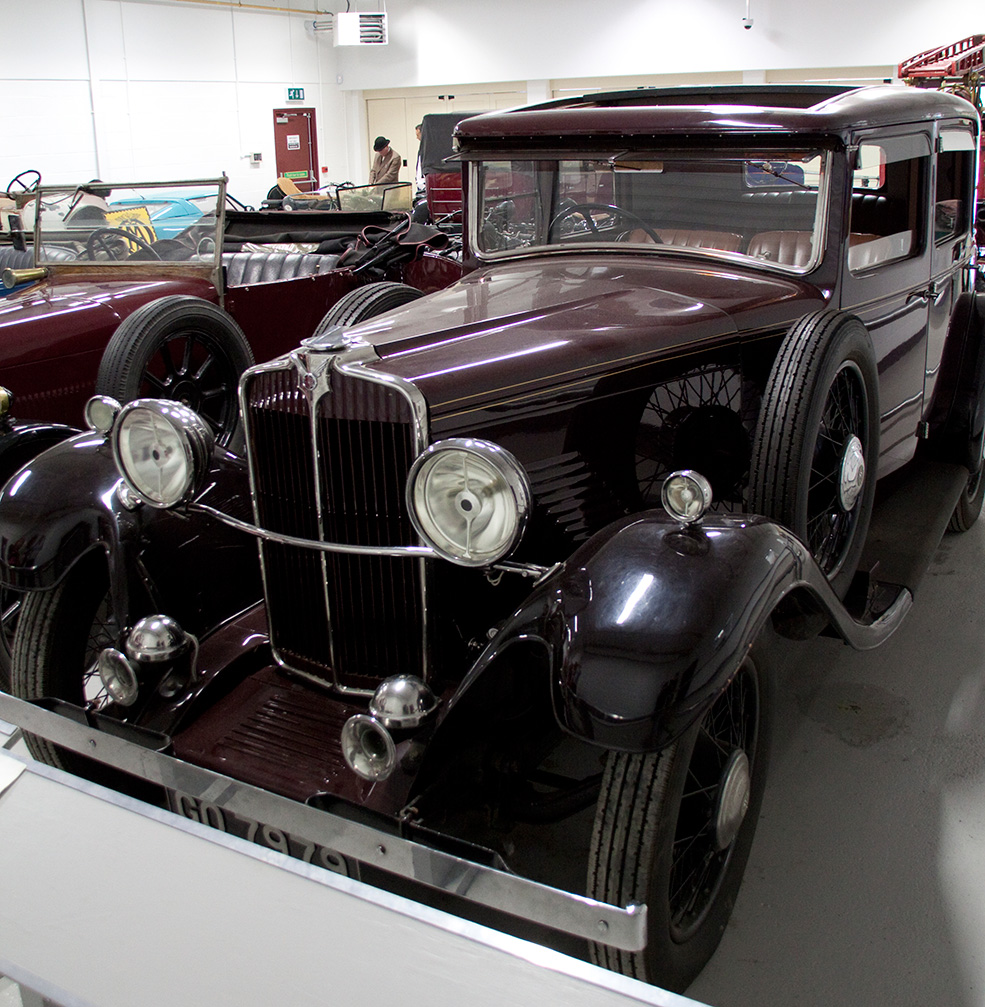
Star (1898-1932)
Based in Wolverhampton, the Star Motor Company was once Britain’s sixth-largest car maker but started out effectively copying an 1897 Benz car after beginning as a cycle maker.
The early cars were often referred to as the Star-Benz and cheekily, Star even manage to win a lawsuit against Mercedes-Benz on the grounds that its new three-pointed star emblem was too similar to Star’s own six-pointed logo.
The associated cycle-making firm introduced a cheaper car known as ‘Starling’ in 1905 as a response to a downturn in bicycle sales, with both being merged in 1909 under the name Briton Motor Company.
The firm came under government control during WW1 but recovered postwar to the point where it was producing 1000 cars a year but the labour-intensive production methods made it hard to compete profitably with the mass-produced Austin and Morris models, meaning that in 1928 the company was taken over by another Wolverhampton maker, Guy Motors.
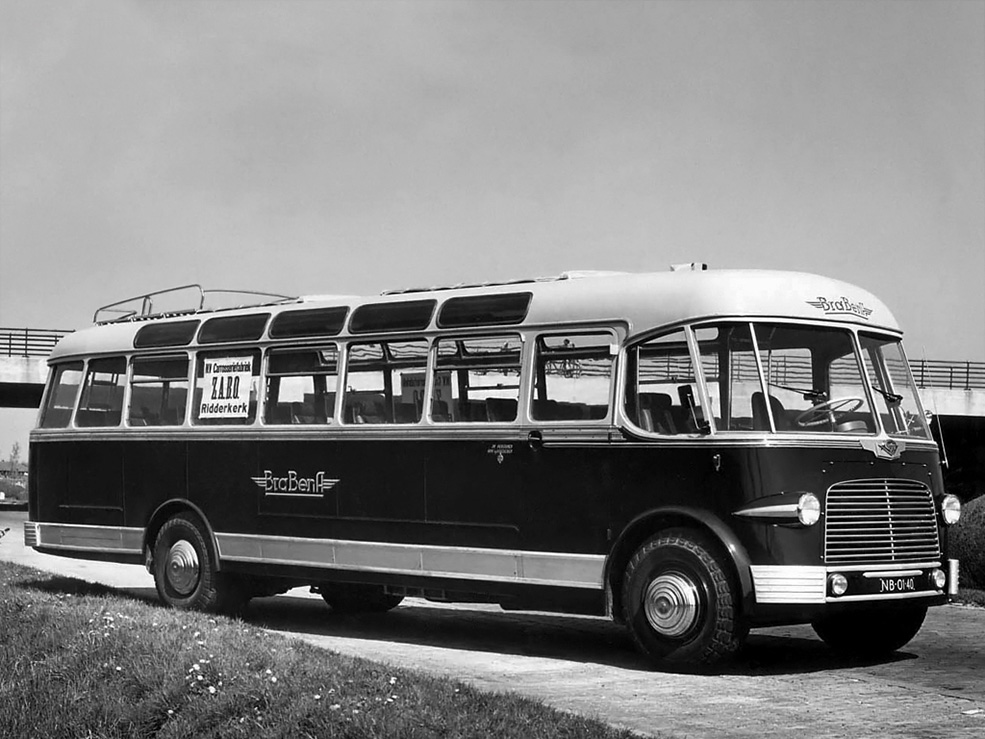
Guy (1914-1982)
Founded in 1914 (what timing!) by Sydney Guy, former Works Manager of Sunbeam, Guy Motors initially produced lorries before deciding to produce luxury cars in the postwar years, the result being the first British-built V8 car, later joined by a cheaper four-cylinder car. During the 1920s, Guy moved back into the commercial vehicle field and became an important exporter of buses, trucks and even armoured vehicles. In 1933, Guy introduced the Arab bus chassis which would be a profitable product well into the 1950s.
Meanwhile, it was getting further involved in government contracts for armoured vehicles and by WW2 its designs were prominent in the war effort.
After acquiring Sunbeam’s commercial vehicle division in 1948, the postwar years saw Guy concentrating on bus manufacture, but financial problems resulted in Jaguar’s Sir William Lyons buying it out of receivership in 1961. This meant it would later become part of British Leyland, the famous name lasting only until 1982.
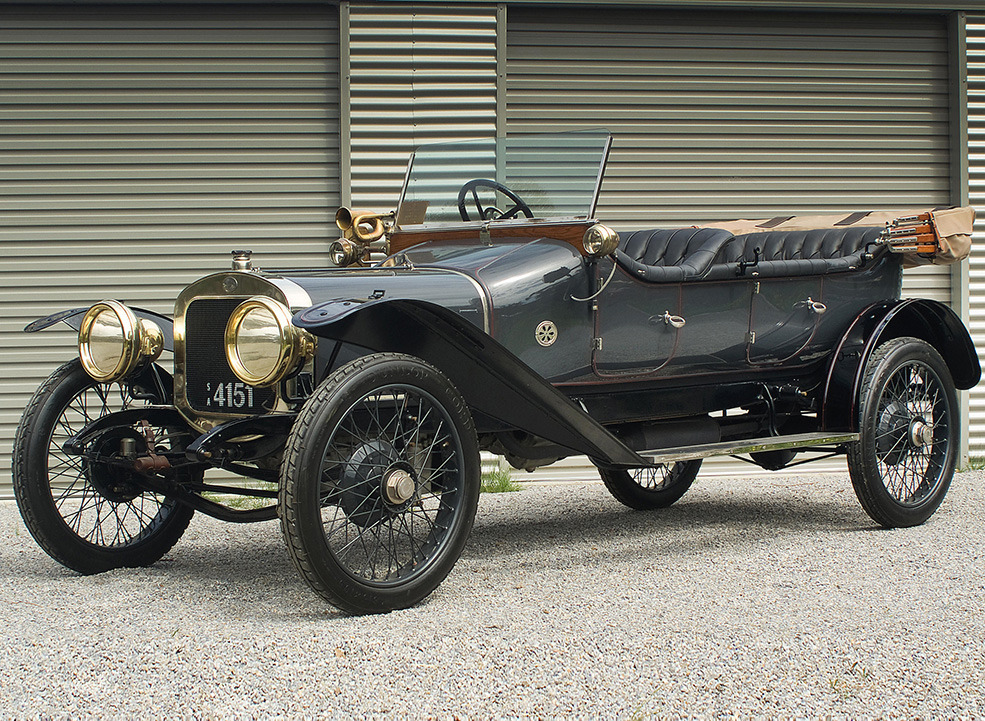
Sunbeam (1903-1971)
Another name to begin with bicycles, Sunbeam announced its first car in 1901, but with the passengers sitting side-by-side and the driver using a tiller to steer, it was on odd creation especially with a diamond formation for the wheel pattern.
More conventional cars followed and when the noted designer Louis Coatalen joined the firm in 1909 the Sunbeam brand took on a new reputation for excellence as the firm engaged in fledgling motorsport and component manufacture was brought in-house.
WW1 saw the firm producing aircraft engines as well as complete aircraft, trucks and ambulances but when the founder died in 1918, the firm was acquired by Darracq. Sunbeam was allowed to retain its identity and brand but the 1930s were tough and it ended up in receivership by 1934, at which point the Rootes Group swooped in and purchased the remains.
Production moved from the Black Country to Ryton near Coventry and in typical Rootes fashion, the Sunbeam brand was then used for badge-engineered versions of the Group’s other models. Rootes itself would ultimately be acquired by Chrysler, the European arm swallowed by Peugeot in 1978 and when production of the Chrysler/Talbot Sunbeam hatchback ended in 1981, the Sunbeam name died with it.
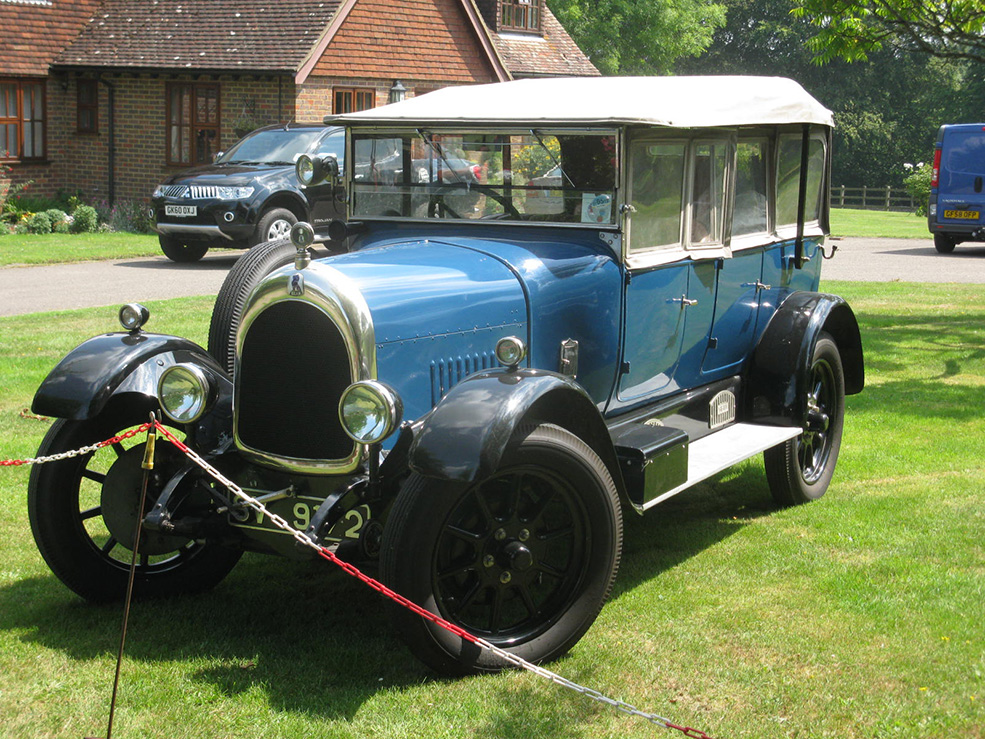
Bean (1919-1985)
One of the few makers not to start out with bicycles, Bean began life as a foundry and when car production started in the early 1900s it found itself a major supplier of parts to this new industry. After prospering through WW1 as an ammunition maker, Bean decided to enter the car market itself in 1919, buying the design rights for a car called the Perry made in nearby Birmingham.
Bean was a forward-looking enterprise, being one of the first to acquire twin moving track assembly lines and inspired by America’s General Motors, managing director Jack Harper Bean even brought together two car makers, a steel firm and a coachbuilder in a consortium formed under his name in 1919.
It exhibited its first car the same year with the aim of matching Ford’s Model T sales and initially things looked good with 2000 cars sold in 1920. Very quickly though, the economy hit trouble and as prices rose and demand dropped, the consortium struggled and was disbanded, only to be rescued by the original founder, George Bean.
Revised models were quickly developed and during the 1920s the Bean 12 and Bean 14 cars sold well, joined by a range of commercial vehicles. Later cars weren’t so popular though, regarded as under-developed with their public reception leading the firm to withdraw from car production and return to castings manufacture under the name Beans Industries.
Bean would then become part of Standard-Triumph in 1956 and thus a part of British Leyland, but when BL was broken up in the 1980s, a management buyout saw the firm privatised once more. At this point it returned to car making when the same team also acquired Reliant but despite supplying castings to Ford among others, Beans itself closed in 2005.
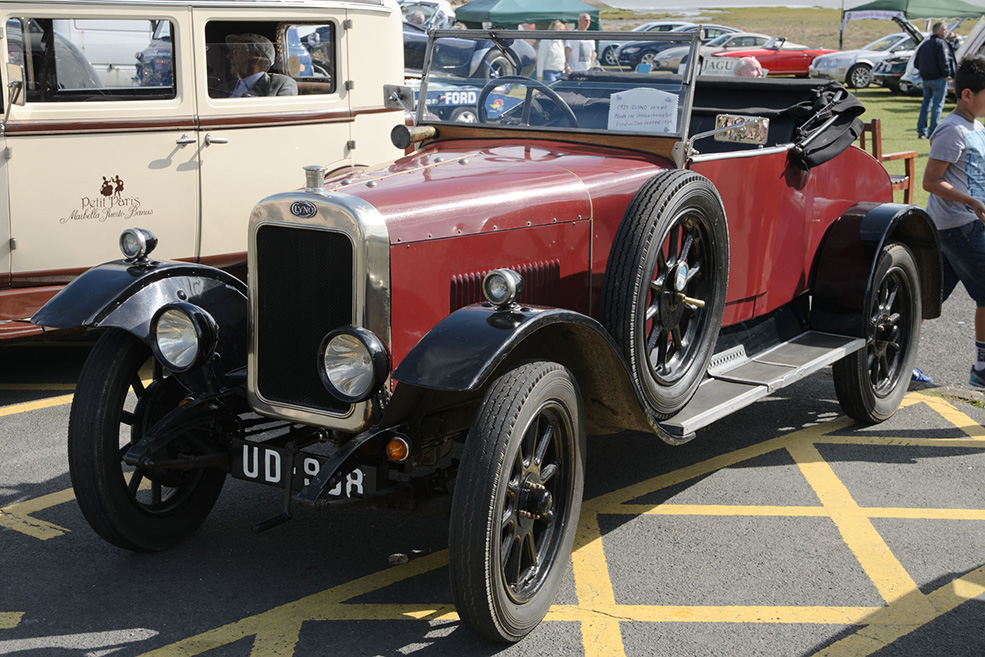
Photo: Steve Glover
Clyno (1909-1929)
Taking its name from the abbreviation of ‘inclined pulley’, a machine drive common in early 1900s factories, Wolverhampton-based Clyno was another company which started out as a motorcycle maker, profiting during WW1 as a military supplier of mobile machine guns – motorbikes with a gunner in the sidecar. Although the firm collapsed in the postwar years, one of its original founders, Frank Smith, restarted car production under the Clyno name and showed its first model in 1922, the Clyno 10.8 two-door saloon with a 1.3-litre Coventry Climax engine.
Clyno would later introduce the larger Clyno 13 with the firm’s own engine and tended to compete on price, which saw it become the third-largest maker in the UK by 1926 behind Austin and Morris.
Expansion followed but the financial strain this placed on the company proved too much despite buoyant sales and when the car market entered recession in the late ’20s, the competition from cars like the Morris Minor and Austin 7 sealed its fate. The Receiver was appointed in 1929.
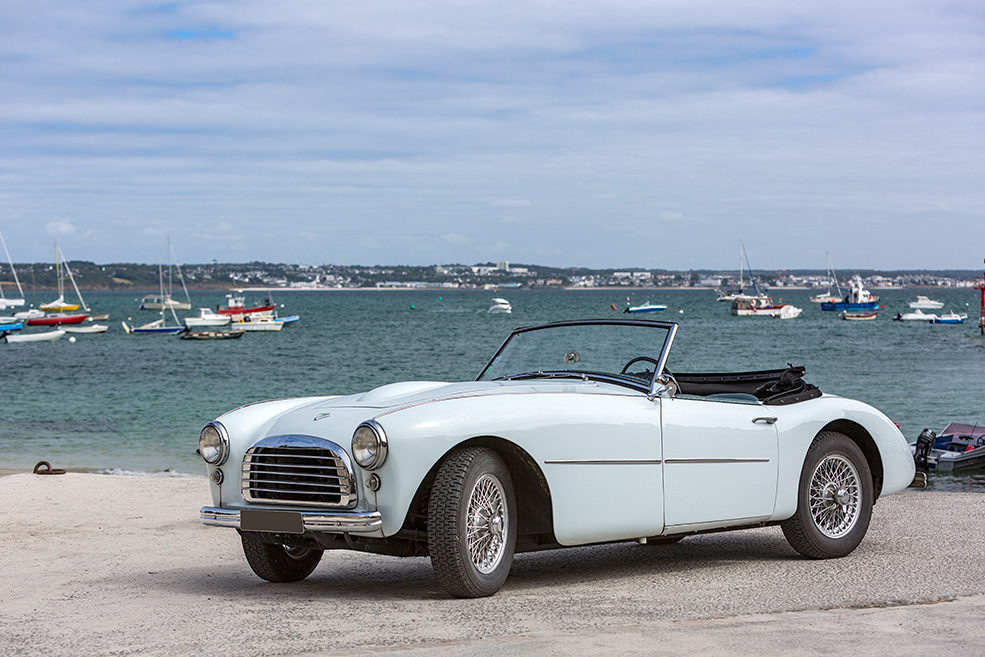
Swallow (1954-1955)
One of the smaller makers but despite this one of the better-known, Swallow was the company which had originally provided Jaguar founder William Lyons with his start in the motor industry. When the firm was sold off by Lyons in 1945, production was moved to Walsall by new owner Tube Investments, making it eligible for our Black Country round-up.
Swallow began production of its sole model the Doretti sports car in 1954, which was essentially a rebodied Triumph TR2 but with a wider and longer wheelbase for increased stability. This was achieved by using an exotic tube chassis but the Triumph running gear and suspension remained.
The stylish body was intriguing, using a steel structure carrying aluminium outer panels and the car was a 100mph machine. Production ended in 1955 after fewer than 300 had been built.

